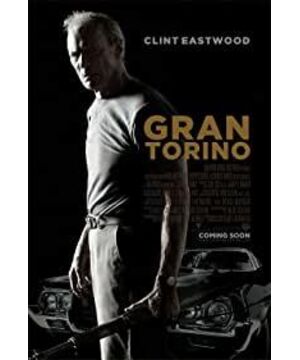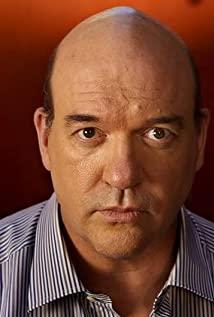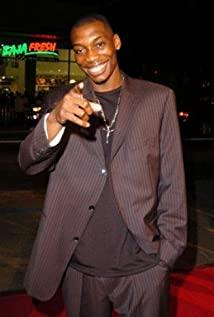The old man Walter in the movie is in a full-blown crisis:
1. The wife just died. The two sons, daughters-in-law, grandchildren, and grandchildren are all mercenaries, and they choke when they talk.
2. Neighbors with nasty Asian faces, why Hmong - is that implying uncivilized? By no means is the typical Asian successful person, this group of people has long been willing to integrate into the middle class. No offense to the old man, he may have moved into the kind of noble community where his son lives.
3. He vomited blood and was not only old but sick.
4. The community priest pestered him to execute his wife's will: to do a dying confession.
5. He used a big gun brought back from the Korean battlefield to shelter the neighbor boy and provoked the juvenile underworld.
The only consolation for such an old man is an old dog Daisy and a classic 1972 Gran Torino car - which I don't understand, seems to be rewarded for excellent performance on the battlefield. If so, it would be too obvious that the car was handed over to the neighbor, young Tao.
All the dramatic conflicts originate from the old man's desire to be an old hero and maintain his life-long faithful values: punish the evil and promote the good, and protect the weak. I think a person is an individual because he has dignity, where does that dignity come from, and defends his values.
Throughout his life, the old man never repented of his actions in the Korean War - he killed 13 people. Does it matter to him? I don't think so. The traces of murder left on him are irritable and contemptuous, and it is difficult to communicate. He was contemptuous of people and things that were invisible.
What is the ending brought about by his "ruling violence with violence" as a hero? The lovely girl Su was raped, and the teenager continued to be bullied. Instead of helping the weak, his guns and fists brought them great disaster.
He finally woke up and came up with a "smart" way - provoked the punk to shoot him, and there were many witnesses. The gangster was brought to justice, and the neighbors were given temporary peace. This time, he used peaceful means to take this old life.
There are three questions here:
1. Does the old man have no regrets for his murder in the Korean battlefield?
2. Is it possible to deal with primitive brutal violence peacefully?
3. Does the old man still hate his Hmong neighbors, is he a racist?
The old man replied with "death" or refused to answer, because there is no one he can trust in this world, only those he wants to protect or those he wants to resist. It can be said that a hero is lonely and has nowhere to go!
This touches on a crux of the American spirit:
how do Americans view the Korean War?
What do the Chinese think?
Although Obama was in power, the whole world joined in the fun. The scenery really overwhelmed the Olympics, and it also shows that the value system of the United States is indeed clearer, more solid, and more demagogic than that of China. But there is one thing I think, if Obama is regarded as the fruit of the civil rights movement, you need to see when he gave this fruit?
Oprah is red, directly affecting the spirit of Americans (outsiders look a bit like a fish ball teacher, don't know what the core is), as well as Rice and Powell, Obama is just pinching.
I don't know what Obama did, but when the three major American automakers were all at risk, it was not a nostalgia to launch the beautiful and stylish Gran Torino in 1972?
Looking back at the past, from North Korea to Vietnam, from Iraq to Yugoslavia and Afghanistan, when has the United States not solved problems through war (violence), sometimes its own problems, but the world has to pay - just like Walter's old age crisis hopes to revive peace It's the same as continuing your own values, even at the end of it. The most typical is "9.11", and this time the financial crisis. This is determined by the shape of the United States as a capitalist empire. As for the advanced system that everyone admires, it is not denied, but the essence of this empire is unchanged.
Punishing the bad and promoting the good, and helping the weak is one of the typical American values, it is also the propaganda of Hollywood, and it is one of the reasons why so many people admire the United States. However, those who bear this value concept are facing old age, internal and external difficulties, facing the ruthless descendants of the "Sales" generation, and facing the challenge of a group of "small Asian triad elements". The most important thing is that the implementation of this value The legitimacy and validity are also facing new questions and tests, and they are necessary, and may not be as consistent as people think.
The death of Walter Sr. is a satire of the "American spirit" to some extent. But being able to do this is still very powerful, and being able to reflect on it means that there is still a chance and hope.
(2009/1/15 in Vancouver)
View more about Gran Torino reviews










